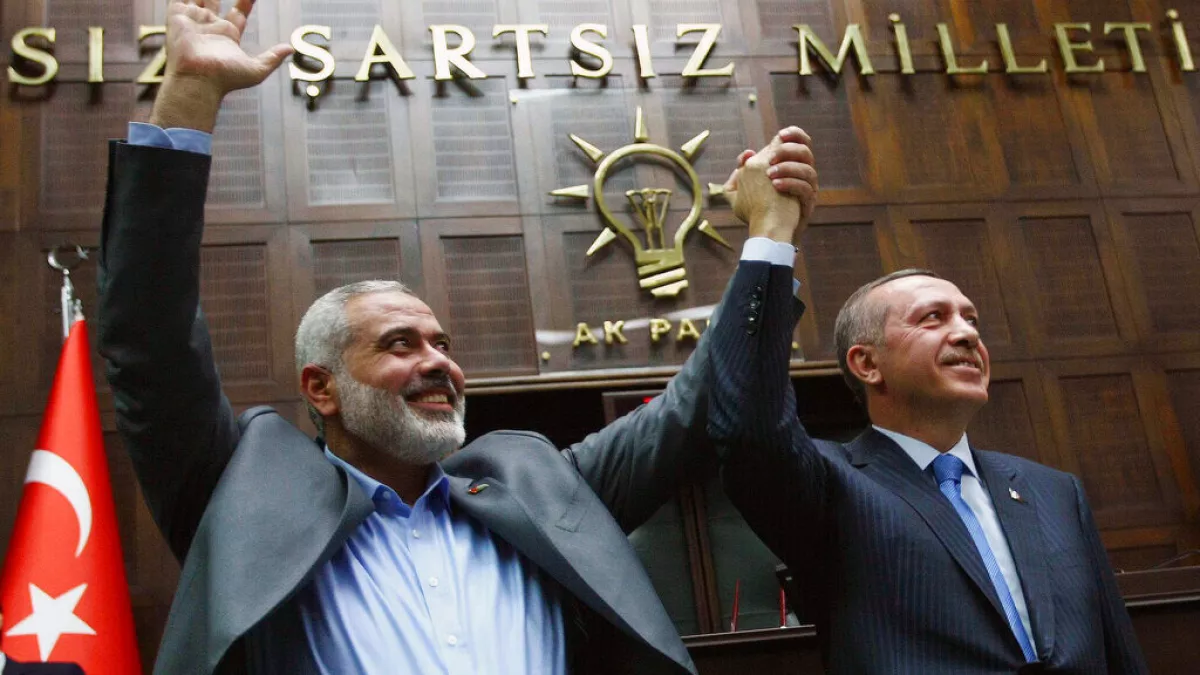The United States has sounded Turkey as a warning that the latter’s position on the housing of Hamas members must be viewed within perspective because leaders of a designated terrorist group must not be allowed to go scot-free in allied countries. According to reports, it is said that some leaders of the Hamas group have moved from Qatar to Turkey, and this has become an issue in Washington.
US Calls for Very Clear Anti-Hamas Posture
While addressing the press, U.S. State Department spokesman Matthew Miller made a response to all blazing questions about the possible relocation of Hamas leaders to Turkey. Although Miller neither confirmed nor denied these reports, he has been emphasizing that the United States government will first announce its stand before Ankara: “There can be no more business as usual with Hamas.” He recalled that several Hamas leaders are under indictment by the United States and that Washington expects them to be deported if they are found in allied countries.
“We do not believe that leaders of such a brutal terrorist organization should be able to live anywhere, and certainly not in. a large city of one of our close friends and allies,” Miller said. That strong message underlines once more the position of the U.S.: its allies shouldn’t harbor those related to terrorist activity.
Turkey and Hamas: Contradictory Accusations
A Turkish diplomatic source dismissed the claims Monday, saying that Hamas does not have a permanent political office in Turkey. Only Hamas officials visit Turkey periodically, the source said. The source was responding to a report that Hamas had shifted some of its operations from Qatar to Turkey, which caused anxiety in Washington.
Hamas rejected the reports, describing the accusations as “rumors the occupation is trying to publish from time to time.” Turkey, a NATO country, is not listing Hamas as a terrorist organization and has been one of the most vocal critics of Israel regarding the military strikes against Gaza and Lebanon, which places its relations with Washington on a much more complicated level.
More:Netanyahu Approves Deadly Pager Attacks on Hezbollah Strongholds in Lebanon
Qatar’s Mediation Role Falters
Developments about Hamas came as Qatar declared a freeze on its mediation efforts between Hamas and Israel. Last week, Qatar said it is freezing attempts to broker a Gaza ceasefire and hostage exchange until both sides show more seriousness in negotiations. Qatar also shot down reports circulating that it had asked Hamas to leave the country, calling those reports “incorrect.”
This created further complexity for tensions between the U.S. and some of its Middle Eastern partners, particularly on issues related to their handling of Hamas and approaches to ongoing conflicts involving Israel.
Diplomatic Tension Over Accusations Regarding Handling of Hamas
Turkey’s actions regarding the situation awkwardly positioned it against the United States, a crucial NATO ally. Indeed, Washington’s stand on Hamas leadership and the call for accountability is part of the broader policy opposing terrorism and placing allied nations under the same rules. Turkey’s reluctance to classify Hamas as a terrorist organization has been one point of contention for Ankara and some of its Western allies, including the United States, during the past years.
Yet another warning from the U.S. government puts Turkey on a tight diplomatic balance again: Ankara has been striving to play a significant role in Middle Eastern affairs while keeping relations with the West and regional actors, including Iran.
In this scenario, it remains to be seen how Ankara will react to Washington’s pressure and handle its relationship with Hamas, particularly as Western powers scrutinize it more. More broadly, U.S.-Turkey relations would all depend on how Ankara reacts and what that narrative of an unfolding Middle East geopolitical landscape holds.















